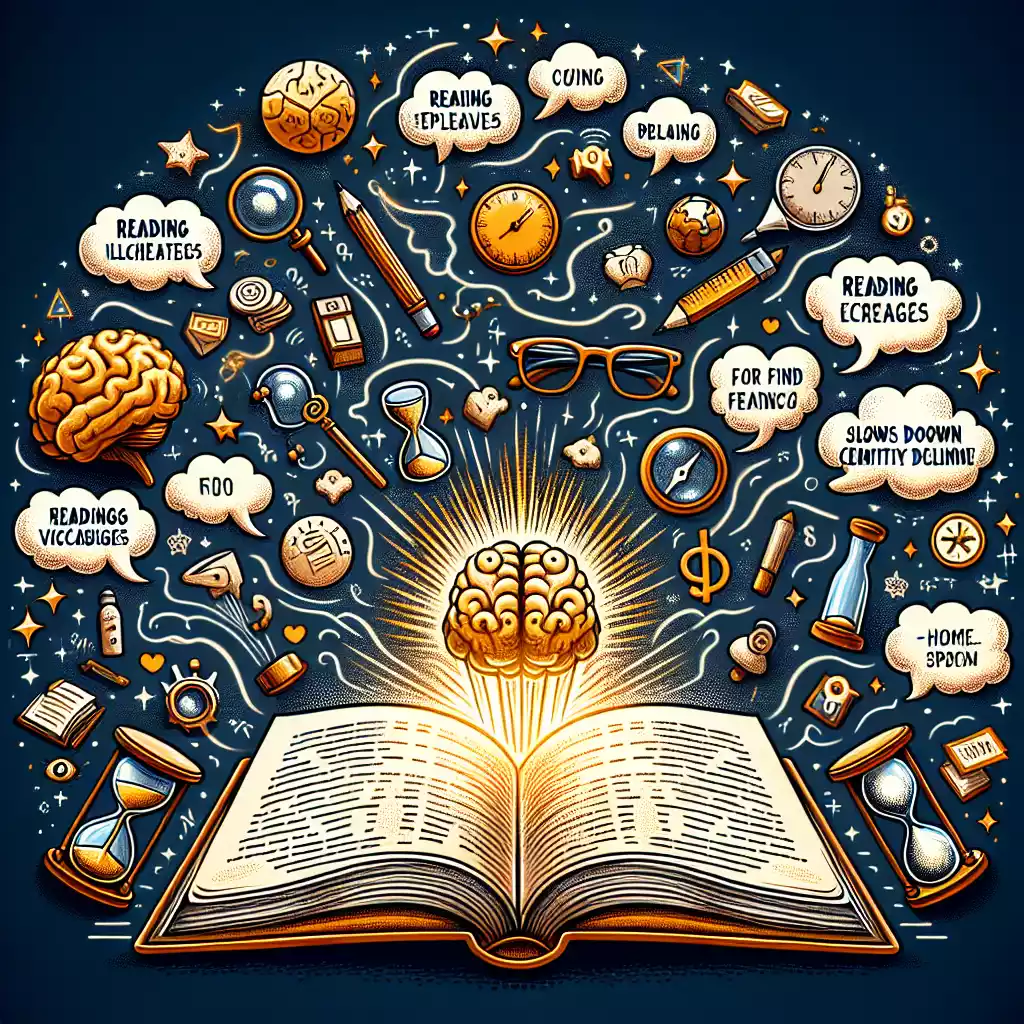Reading is more than just a pastime; it’s a gateway to endless knowledge and adventure. From ancient scrolls to modern e-books, the act of reading has evolved, yet its essence remains unchanged. It allows us to explore different cultures, understand diverse perspectives, and even escape into fantastical realms. Whether you’re flipping through the pages of a classic novel or scrolling through an article on your tablet, reading enriches the mind and soul.
Table of Contents
ToggleThe Importance of Reading
Reading is a fundamental skill that impacts various aspects of our lives. It enhances our cognitive abilities, emotional intelligence, and social skills. Let’s delve into the multifaceted benefits of reading.
Cognitive Benefits of Reading
Reading stimulates the brain, improving mental functions and cognitive abilities. Studies have shown that regular reading can enhance brain connectivity, increase vocabulary, and improve comprehension skills. Engaging with complex texts challenges the brain, fostering critical thinking and problem-solving abilities.
• Enhanced Brain Connectivity: Reading creates new neural pathways, improving brain function.
• Increased Vocabulary: Exposure to new words and phrases expands our linguistic repertoire.
• Improved Comprehension: Understanding complex texts enhances our ability to grasp intricate concepts.
Emotional and Social Benefits of Reading
Reading fiction, in particular, can enhance empathy and emotional intelligence. By immersing ourselves in the lives of characters, we learn to understand and share the feelings of others. This emotional engagement can translate into better social interactions and relationships in real life.
• Enhanced Empathy: Understanding characters’ emotions helps us relate to others.
• Improved Emotional Intelligence: Recognizing and managing emotions becomes easier.
• Better Social Skills: Engaging with diverse narratives fosters open-mindedness and tolerance.
How to Cultivate a Reading Habit
Developing a reading habit can be a rewarding endeavor. Here are some practical tips to help you get started and stay committed.
• Set Realistic Goals: Start with small, achievable targets, like reading for 10 minutes a day.
• Create a Reading Schedule: Dedicate specific times for reading, such as before bed or during lunch breaks.
• Choose Engaging Books: Pick books that genuinely interest you to maintain motivation.
• Join a Book Club: Sharing your reading experience with others can keep you accountable and inspired.
Choosing the Right Books

Selecting the right books is crucial for maintaining interest and motivation. Understanding your preferences and exploring different genres can help you find the perfect reads.
Understanding Your Interests
Identifying your interests is the first step in choosing the right books. Reflect on your hobbies, passions, and curiosities. Are you fascinated by history, intrigued by science fiction, or captivated by romance? Knowing what excites you will guide you towards books that you’ll genuinely enjoy.
• Reflect on Hobbies: Consider books related to your favorite activities.
• Explore Passions: Look for books that delve into subjects you’re passionate about.
• Follow Curiosities: Choose books that answer questions or explore topics you’re curious about.
Exploring Different Genres
Don’t limit yourself to one genre. Exploring various genres can introduce you to new perspectives and broaden your literary horizons. From mystery and thriller to fantasy and non-fiction, each genre offers unique experiences and insights.
• Mystery and Thriller: Engage with suspenseful plots and intriguing characters.
• Fantasy and Science Fiction: Escape into imaginative worlds and futuristic scenarios.
• Non-Fiction: Gain knowledge and insights from real-life stories and factual information.
Tips for Effective Reading
Effective reading involves more than just going through the words on a page. It requires setting goals, creating a conducive environment, and engaging with the text.
Setting Reading Goals
Setting clear and achievable reading goals can keep you motivated and focused. Whether it’s finishing a certain number of books in a month or dedicating a specific amount of time to reading each day, having goals can provide direction and purpose.
• Daily Reading Time: Allocate a specific time each day for reading.
• Book Count Goals: Aim to read a certain number of books within a set period.
• Chapter Targets: Break down your reading into manageable chapters or sections.
Creating a Reading Environment
A comfortable and distraction-free environment is essential for effective reading. Find a quiet spot, ensure good lighting, and have all your reading materials within reach.
• Quiet Spot: Choose a place free from noise and interruptions.
• Good Lighting: Ensure adequate lighting to avoid straining your eyes.
• Comfortable Seating: Sit in a comfortable chair or position to enhance focus.
Fun Ways to Engage with Books

Reading doesn’t have to be a solitary activity. There are various fun and interactive ways to engage with books and share your reading experience with others.
Joining Book Clubs
Book clubs offer a platform to discuss and share your thoughts on books with like-minded individuals. They provide a sense of community and can introduce you to new books and genres.
• Discussion Groups: Participate in group discussions to gain different perspectives.
• Reading Challenges: Take part in reading challenges to stay motivated.
• Social Interaction: Build friendships and connections through shared reading experiences.
Participating in Reading Challenges
Reading challenges can add an element of fun and competition to your reading habit. They can push you to read more and explore books you might not have considered otherwise.
• Monthly Challenges: Set monthly reading goals and track your progress.
• Genre-Specific Challenges: Challenge yourself to read books from different genres.
• Themed Challenges: Participate in challenges based on specific themes or topics.
Fun Facts About Reading
Reading has a rich history and continues to evolve in fascinating ways. Here are some fun facts that highlight the intriguing aspects of reading.
Historical Facts
• Ancient Libraries: The first known library was established in Nineveh, Assyria (now Iraq) around 700 BC.
• Gutenberg’s Printing Press: The invention of the printing press in the 15th century revolutionized the availability of books.
• Oldest Known Book: The “Epic of Gilgamesh,” dating back to 2100 BC, is considered one of the oldest known literary works.
Modern-Day Reading Trends
• E-Books and Audiobooks: The rise of digital technology has made e-books and audiobooks increasingly popular.
• Reading Apps: Apps like Kindle and Audible have made reading more accessible and convenient.
• Bookstagram: Social media platforms like Instagram have communities dedicated to sharing book recommendations and reviews.
Relevant Data Table For The Fun Facts About Reading:
| Fun Fact Category | Interesting Fact |
|---|---|
| Historical Facts | The first known library was established in Nineveh, Assyria (now Iraq) around 700 BC. |
| Modern-Day Trends | E-books and audiobooks have seen a significant rise in popularity in the last decade. |
| Cognitive Benefits | Reading can improve brain connectivity and increase vocabulary. |
| Emotional Benefits | Reading fiction can enhance empathy and emotional intelligence. |
| Social Benefits | Book clubs and reading groups foster community and social interaction. |
FAQs:
1. How can I find time to read in a busy schedule?
Finding time to read in a busy schedule can be challenging, but it’s possible with some planning and commitment. Start by identifying pockets of free time in your day. This could be during your commute, lunch break, or before bed. Even dedicating just 10-15 minutes a day to reading can make a difference.
Consider carrying a book or e-reader with you so you can read whenever you have a few spare moments. Audiobooks are also a great option for multitasking, allowing you to listen to books while doing chores or exercising. Setting specific reading goals and creating a reading schedule can help you stay on track. Remember, consistency is key. Making reading a daily habit, even in small increments, can lead to significant progress over time.
2. What are some recommended books for beginners?
For beginners, it’s important to choose books that are engaging and not too complex. Here are some recommendations:
• “To Kill a Mockingbird” by Harper Lee: A classic novel that explores themes of racial injustice and moral growth.
• “The Alchemist” by Paulo Coelho: A philosophical tale about following your dreams and discovering your destiny.
• “Harry Potter and the Sorcerer’s Stone” by J.K. Rowling: A magical adventure that captivates readers of all ages.
• “The Catcher in the Rye” by J.D. Salinger: A coming-of-age story that resonates with many readers.
• “The Great Gatsby” by F. Scott Fitzgerald: A novel that delves into themes of wealth, love, and the American Dream.
These books are well-loved and accessible, making them great starting points for new readers.
3. How does reading benefit mental health?
Reading has numerous benefits for mental health. It can reduce stress, improve focus, and enhance cognitive function. Engaging with a good book can provide an escape from daily stressors, allowing you to relax and unwind. Reading fiction, in particular, can improve empathy and emotional intelligence, helping you understand and manage your emotions better.
Additionally, reading can improve sleep quality. Establishing a bedtime reading routine can signal to your brain that it’s time to wind down, promoting better sleep. Reading also stimulates the brain, keeping it active and engaged, which can help prevent cognitive decline as you age. Overall, incorporating reading into your daily routine can contribute to better mental health and well-being.
4. Are audiobooks as effective as reading physical books?
Audiobooks offer a different but equally valuable reading experience. They are particularly useful for multitasking, allowing you to enjoy books while driving, exercising, or doing household chores. Audiobooks can also be beneficial for individuals with visual impairments or reading difficulties, providing an accessible way to enjoy literature.
While the experience of listening to a book differs from reading a physical or digital copy, the cognitive benefits remain similar. Audiobooks can enhance comprehension, vocabulary, and critical thinking skills. They also offer the added benefit of hearing the narrator’s tone and inflection, which can bring the story to life in a unique way. Ultimately, the choice between audiobooks and physical books comes down to personal preference and lifestyle.
5. How can I encourage my children to read more?
Encouraging children to read more involves creating a positive and engaging reading environment. Start by making books readily available at home. Create a cozy reading nook with comfortable seating and good lighting. Choose books that match your child’s interests and reading level. Picture books, graphic novels, and interactive books can be particularly appealing to young readers.
Set aside dedicated reading time each day, and make it a family activity. Reading together can foster a love for books and create lasting memories. Be a reading role model by letting your child see you read regularly. Discuss the books you read together, asking questions and sharing thoughts to make the experience interactive. Rewarding reading milestones with praise or small incentives can also motivate children to read more.
Conclusion:
Reading is a powerful tool that enriches our minds, enhances our emotional well-being, and connects us with others. By understanding its benefits, choosing the right books, and engaging with reading communities, you can cultivate a lifelong love for reading. Dive into a book today and discover the endless possibilities that await!
Post References:
• “The Benefits of Reading Books: How It Can Positively Affect Your Life” – Healthline
• “Why Reading is Important for Adults and Kids” – Oxford Learning
• “The Cognitive Benefits of Reading” – Psychology Today
• “How Reading Improves Emotional Intelligence” – Harvard Business Review
• “The History of Libraries” – Ancient History Encyclopedia





